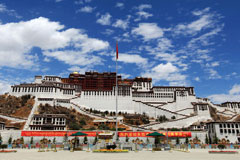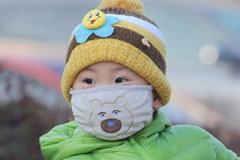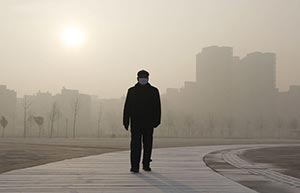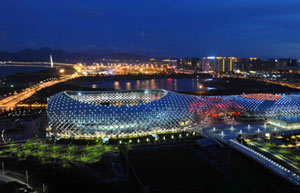Big cities struggle to meet pollution standards
By Zheng Xin (China Daily) Updated: 2014-06-05 04:08Most major Chinese cities continue to suffer heavy air pollution, but cleanup efforts are showing signs of progress, the country's environmental watchdog said on Wednesday.
|
 |
|
 |
Only three out of 74 cities that adopted revised air quality standards made the mark last year, Li Ganjie, vice-minister of environmental protection, said during the release of the 2013 Report on the State of the Environment in China.
Haikou in Hainan province, Zhoushan in Zhejiang province and Lhasa in the Tibet autonomous region reached the new air quality standards, according to the report.
The measurements are based on the intensity of pollution factors like sulfur dioxide, nitrogen dioxide, PM10, PM2.5, carbon monoxide and ozone.
Many of the top 10 cities with the worst air pollution are near the Chinese capital, including Shijiazhuang, Baoding and Tangshan in Hebei province.
Xi'an in Shaanxi province and Zhengzhou in Henan province were also on the list.
But the intensity of PM2.5 — particulate matter with a diameter smaller than 2.5 microns that can reach deep into the lungs — in the 74 major cities during the first quarter of 2014 fell by 10.3 percent year-on-year. This shows that the air quality is getting better nationwide, Li said.
"Considering that the first quarter is the most polluted season of the year, the data is still very convincing."
Of the 259 Chinese cities that continued to apply the old air pollution standards, about 70 percent met the requirements, Li said.
"The overall environmental quality has improved, whereas the ecological and environment protection situation is still severe," he said.
The stricter air quality measures are seen as a step forward in the government's determination to fight the notorious air pollution, he said.
 Top 10 cities with worst smog in China |
 China's top 10 richest cities |
- Top 10 cities with best air quality in China
- Top 10 products minting most from smog
- China scraps high-pollution vehicles in air cleanup
- China inspects enforcement of air pollution law
- New Tianjin pollution plan calls for car-use restrictions
- Top environmental agency defines pollution haze
- Pollution casts pall over cities' livability
- China 'incredibly innovative' in many areas: Apple CEO
- City official: Guangzhou further committed to opening-up
- Jack Ma: Globalization backed by technology will cut inequality
- HNA confirms interest in ASEAN's infrastructure investment
- Comments on Xi's letter to 2017 Fortune Global Forum
- China to create more opportunities for the world: Xi
- US tax cuts impact on China two-sided: economists
- Chinese enterprises job fair to be held in Sri Lanka

















